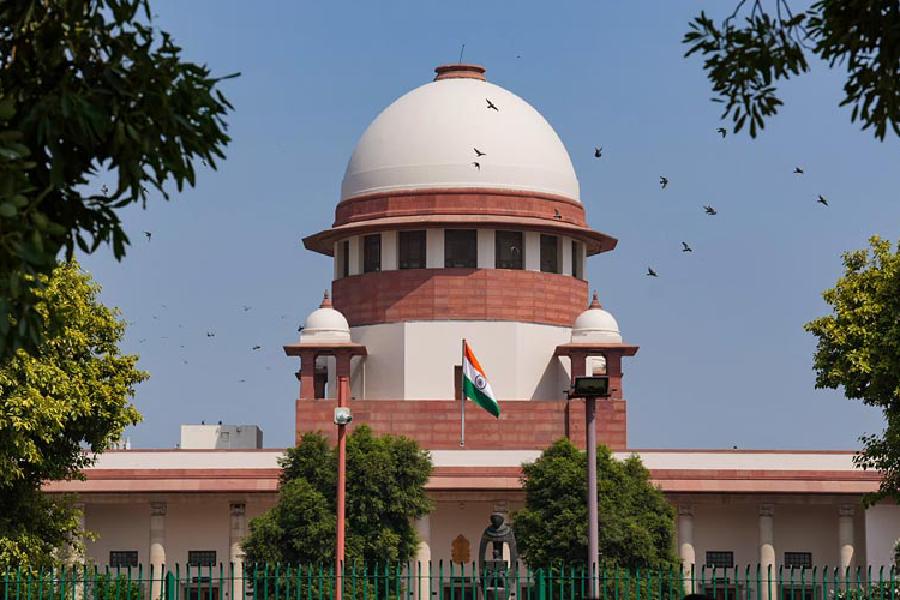A five-judge constitution bench of the Supreme Court on Wednesday recorded an undertaking from the Centre that it would "not touch” any of the constitutional provisions accorded to the Northeast and other states, as it had done in Jammu and Kashmir by repealing its special status under Article 370.
A bench headed by Chief Justice D.Y. Chandrachud recorded the assurance by solicitor-general Tushar Mehta, who intervened during the hearing of an application argued by senior advocate Manish Tewari raising apprehension about the possible tinkering of the special provisions accorded to the northeastern states and also some other states under Part XXI of the Constitution.
Part XXI, read with Article 371, provides special protection and privileges mostly to tribals in Nagaland, Assam, Manipur, Sikkim, Mizoram, Arunachal Pradesh, Andhra Pradesh, Telangana, Goa and Karnataka.
Tewari said even a “slight apprehension in the periphery of India (the northeastern states) can have serious implications". He pointed to the Manipur violence.
Mehta rose to make an oral statement, saying: “...We must understand the difference between a temporary provision such as Article 370 and special provisions which are applicable to the Northeast. I am under instructions to say that the central government has no intention to touch the special provisions with regard to the northeastern states or for that matter any other state. There is no need for any apprehension and there is no need to create apprehension.”
The CJI asked: “Mr Tewari, why should we go into apprehensions at all? When as a Constitution principle the solicitor-general has informed us that the central government has no such intentions, why should we apprehend this at all? The apprehensions stand allayed by the statement of the solicitor-general.”










